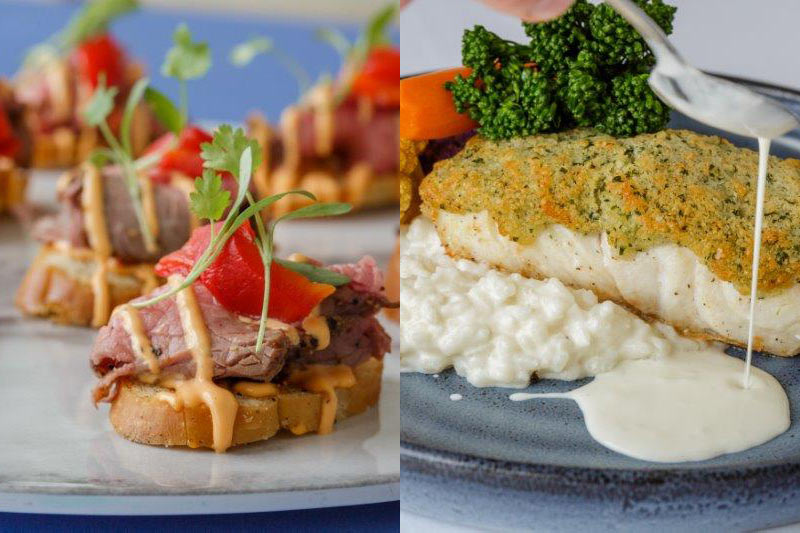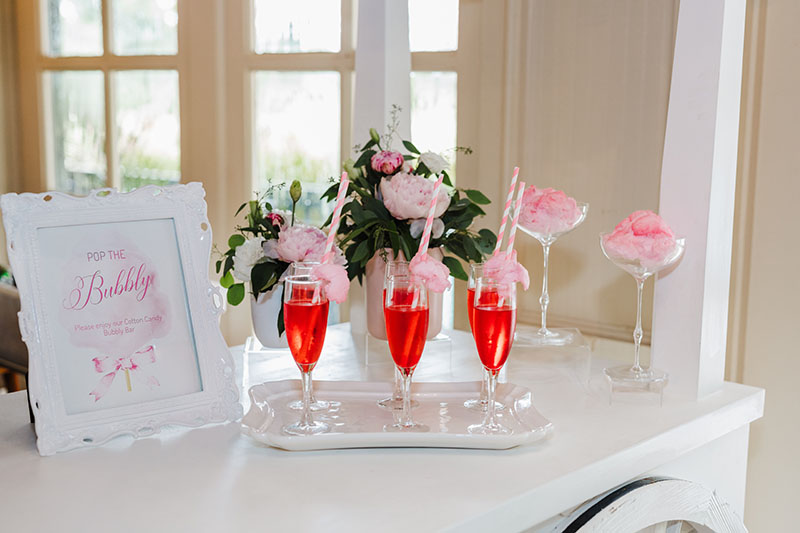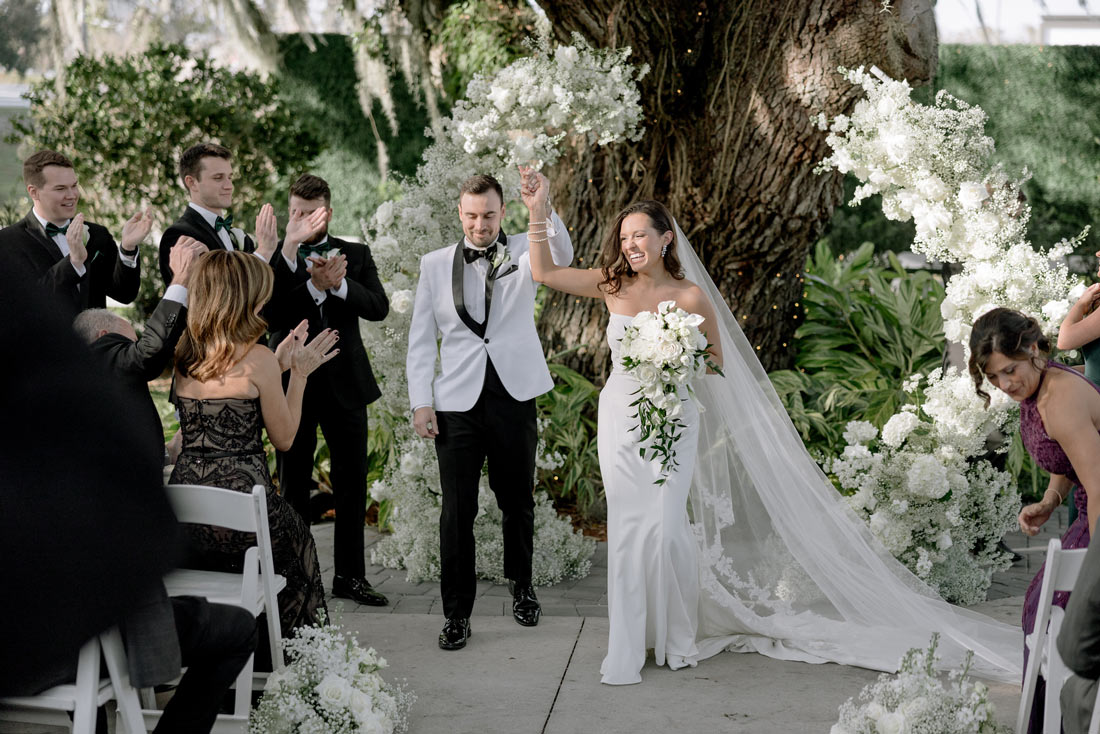Picking a caterer you can count on is a huge part of making sure your wedding reception goes off without a hitch. Since catering often makes up 20–40 percent of your event budget, asking the right questions will help you lock in fantastic food quality, smooth coordination, and total peace of mind.
This guide will show you how to:
- Figure out the differences between in-house, preferred, and outside catering options
- Tailor menus for top-notch taste, tastings, and special dietary needs
- Understand pricing, contracts, and any sneaky extra costs
- Confirm all the nitty-gritty details like logistics, staffing, and kitchen setup
- Get the scoop on bar packages, alcohol rules, and service times
- Check for reliability with references, permits, and backup plans
- See how Historic Dubsdread, The Highland Manor, and Azalea Lodge at Mead Botanical Garden nail their catering services
Whether you’re a couple planning your big day or an event pro in Orlando, this roadmap will empower you to make sure your wedding venue has the catering solutions you need and that the food perfectly matches your dream day.
Table of Contents
What Kind of Catering Does Your Wedding Venue Offer? In-House, Preferred, or Outside?
Knowing the ins and outs of each catering model helps you strike the right balance between convenience, flexibility, and quality control. How a venue handles catering impacts everything from coordination to vendor choices and contract terms.How Does In-House Catering Make Things Run Smoothly?
With in-house catering, everything from menu planning to kitchen operations and service staff is managed under one roof, leading to better timing and consistent quality. When your venue has its own culinary team, the chefs and servers know the space, making transitions from setup to cleanup seamless.
Here’s why it’s a big plus:
-
- They know the room, so service is quicker
- You have one point person for both food and venue staff
- Quality control is standardized
This direct oversight builds trust and reliability, paving the way for menu customization without any vendor clashes.
What Are the Upsides and Downsides of Using Outside Wedding Caterers?
Bringing in outside caterers may provide alternative menu options for venues that allow outside caterers, but it does require extra coordination with the venue staff. Hiring an independent service puts the responsibility of vendor communication, kitchen access, and equipment needs squarely on your shoulders.
Here’s a quick comparison:| Catering Model | Coordination Benefit | Flexibility Level |
| Typical In-House | All managed together | Low/Moderate |
| External | You handle the contracting | High, but limited venues |
| Events by Dubsdread | All managed together | High/Customizable |
| Preferred Vendor | Collaboration with some venue oversight | High |
How Do Preferred Vendor Lists Impact Your Catering Choices?
Preferred vendor lists offer a compromise between venue oversight and outside expertise by pre-vetting a select group of caterers. This approach ensures that each approved caterer meets the venue’s rules, insurance needs, and service standards, all while keeping menu options diverse. Venues maintain quality by checking nutrition guidelines, staff qualifications, and equipment compatibility.
With years of expertise in catering, Events by Dubsdread has cultivated strong relationships with venues such as Harry P. Leu Gardens, Orlando Science Center, Orlando Museum of Art, Winter Park Farmer’s Market and many more. These relationships allow us to deliver exceptional service that meets the high standards expected by our clients. To explore the full range of our venue partners and discover the perfect location to host your next event, click here to see our full list of Central Florida Venues. Here, our potential clients will find inspiration and the peace of mind that comes from working with a professional and trustworthy catering service committed to excellence.
What Questions Should You Ask About Catering Model Policies?
Before you book, be sure to ask about:
-
- Which caterers are on the approved list, and are any off-limits?
- What kitchen facilities or equipment does the venue provide?
- Are there any exclusive service requirements or minimum guest counts?
- How does the venue verify vendor arrivals, insurance, and health permits?
Getting these details ironed out clarifies who’s responsible for what, helps you avoid unexpected charges, and ensures reliable service.
How Can You Personalize Your Wedding Menu to Match Your Culinary Dreams?
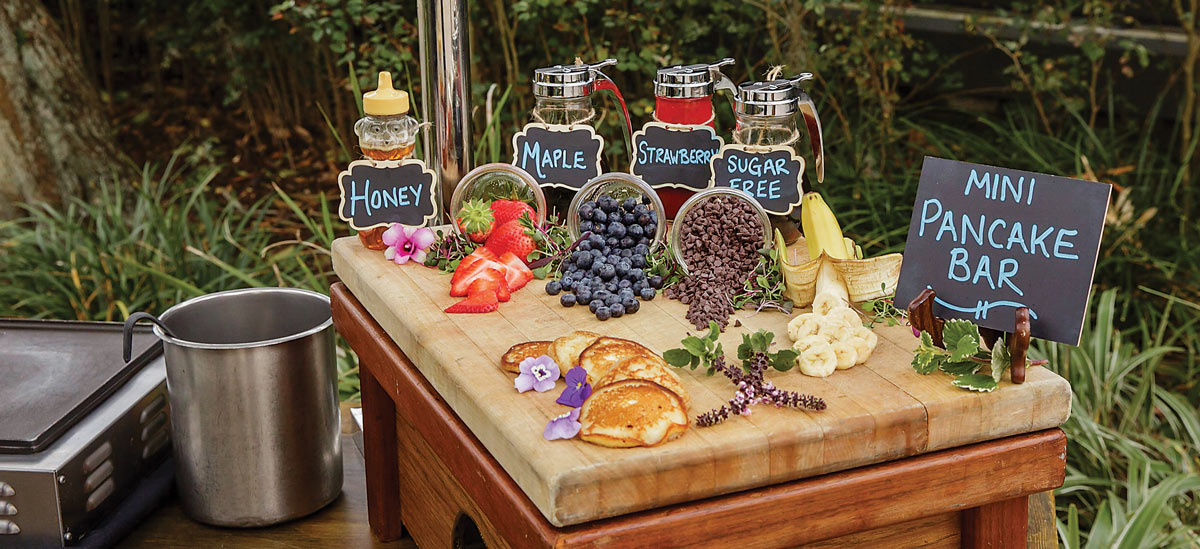 Offering custom dishes makes your guests feel extra special and truly reflects your personal style. Creating a personalized menu starts with focusing on food quality and ends with a memorable presentation.
Offering custom dishes makes your guests feel extra special and truly reflects your personal style. Creating a personalized menu starts with focusing on food quality and ends with a memorable presentation.
What Menu Options and Food Quality Standards Should You Expect?
A professional caterer will discuss entrée choices, plating styles, and where they source their ingredients. Expect conversations about:
-
- Menus that fit the season or a specific theme
- The freshness of ingredients and where they come from
- Service styles like plated meals, buffets, or interactive food stations
These points ensure that the quality standards align with your vision, setting the stage for a menu tasting to confirm everything.
How Do Venues Handle Dietary Restrictions and Allergies?
Top-notch caterers have clear procedures for preparing vegan, gluten-free, and allergy-friendly meals, often using separate prep areas and cookware. The typical steps involve:
-
- Getting a list of guests with special dietary needs
- Adjusting recipes with safe ingredient swaps
- Clearly labeling food stations for transparency
This process keeps guests safe and ensures everyone feels included, leading smoothly into your tasting session.
Why Are Wedding Food Tastings So Important Before You Book?
Food tastings are your chance to confirm your menu choices, check portion sizes, and fine-tune presentation details. By tasting the signature dishes with your planner, you can:
-
- Evaluate the flavors and how the food looks on the plate
- Make tweaks to seasonings, portion sizes, and garnishes
- Assess the timing for serving each course
Tastings give you the confidence that the final reception meal will be exactly what you envisioned.
Understanding Wedding Catering Costs and Potential Hidden Fees
Wedding catering typically accounts for a significant portion of the overall event budget, often ranging from 20% to 40% of total wedding expenses. Beyond the base charges, couples should anticipate potential hidden fees such as cake-cutting fees, corkage charges for outside alcohol, additional staffing fees, and various service charges, which can substantially increase the final cost.
What Do You Need to Know About Wedding Catering Pricing, Contracts, and Hidden Fees?
Keeping your budget clear prevents surprises down the road. Understanding cost breakdowns and contract terms will reveal what’s included upfront and what might cost extra.How Are Wedding Catering Costs Broken Down, and What’s Typically Included?
Catering packages are often priced per person, based on consumption, or as a flat rate with different service tiers. Common inclusions usually cover:
-
- Appetizers, main courses, and desserts
- Standard plates, cutlery, linens, and service staff
- Service fees and sales tax
| Pricing Model | Pricing Basis | Typical Inclusions |
| Per Person | A set price for each guest | All courses, staff, basic rentals |
| Consumption-Based | What you actually use | Flexibility on portions, seasonal adjustments |
| Flat-Rate Packages | The overall event scope | Menu selection, bar package, service coordination |
What Contract Clauses Need Your Close Attention?
Key contract terms to review carefully include when deposits are due, policies for cancellations and changes in guest count, liability insurance requirements, and payment deadlines. Clear definitions for things like “overtime” hours, how meal counts are handled, and what happens in unforeseen circumstances (force majeure) prevent misunderstandings.
Which Hidden Fees Could Sneak Up on Your Catering Budget?
Beyond the main charges, you might run into fees for cutting the cake, opening your own wine bottles (corkage), calculating gratuities, feeding vendor staff, and renting extra equipment. Identifying these potential costs early on helps you refine your budget and negotiate transparently.
Events by Dubsdread provides detailed, itemized proposals that clearly outline per-person costs, service fees, rental charges, and any optional upgrades. This comprehensive breakdown clarifies every line item, empowering you to make informed decisions and ensuring you know exactly what you’re paying for, with no hidden charges.
How Can You Dodge Unexpected Charges in Your Catering Agreement?
Negotiate clear definitions for every fee category, set maximums for overtime hours, and make sure all included items are confirmed in writing. This level of clarity closes financial loopholes and ensures your final bill accurately reflects what you agreed to.
What Logistics and Staffing Questions Ensure Your Wedding Catering Runs Smoothly?
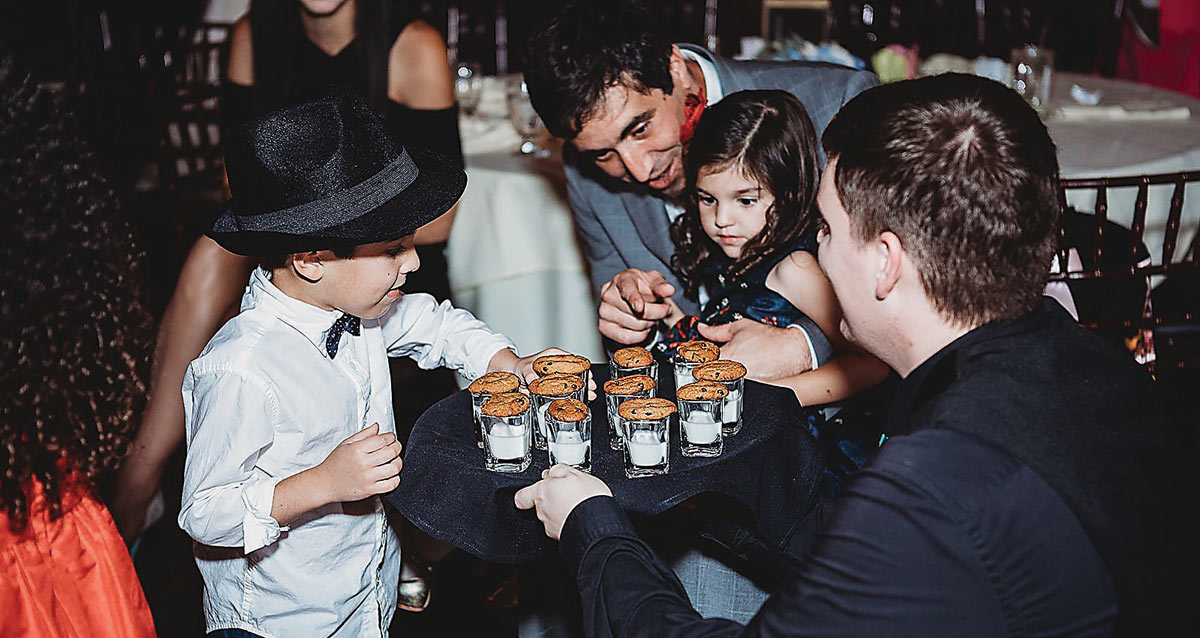 Making sure everything goes perfectly on the big day relies on experienced staff and well-thought-out plans. Asking the right logistical questions helps keep your timeline on track and service quality high.
Making sure everything goes perfectly on the big day relies on experienced staff and well-thought-out plans. Asking the right logistical questions helps keep your timeline on track and service quality high.
How Experienced Are the Catering Staff and Servers?
Professional servers who are trained in wedding etiquette can significantly enhance guest interactions, speed up service, and handle special requests with grace. Ask about their training programs, how much event experience the staff typically has, and if supervisors will be on hand to ensure top-tier hospitality.
What Are the Procedures for Setup, Cleanup, and Coordination?
Establish clear arrival times for kitchen setup, food staging, and venue walkthroughs. Clarify who is responsible for cleanup, the timeline for breaking everything down, and arrange coordination meetings with the venue managers. This alignment ensures a seamless handover between the catering team and the venue staff.
With Events by Dubsdread, our full-service wedding catering means we handle every detail, from crafting your menu to the final cleanup, ensuring a perfectly cohesive and enjoyable experience for everyone.
How Does the Venue’s Kitchen Facility Affect Catering?
The size of the on-site kitchen, the equipment available, and storage space directly impact how complex your menu can be and how smoothly it can be executed. Confirm the access rules for outside caterers, whether there are backup power sources, and if there are any restrictions on food trucks or off-site food preparation.
What’s the Ideal Staff-to-Guest Ratio for Great Service?
Having at least one server for every 20–25 guests helps ensure timely clearing of plates and refreshing of drinks. For plated dinners, increasing the staff ratio to one server per 15 guests can really boost guest satisfaction and make sure no course is delayed.
The Importance of Wedding Food Tastings and Optimal Staffing Ratios
Wedding food tastings are crucial for couples to confirm food quality, customize menus, assess presentation, and build trust with their caterer, ensuring the culinary experience aligns with their vision. Additionally, maintaining appropriate staff-to-guest ratios, such as one server per 20-25 guests for general service and one per 10-20 guests for plated dinners, is essential for seamless service and guest satisfaction.
What Key Questions Should You Ask About Wedding Bar Services and Alcohol Policies?
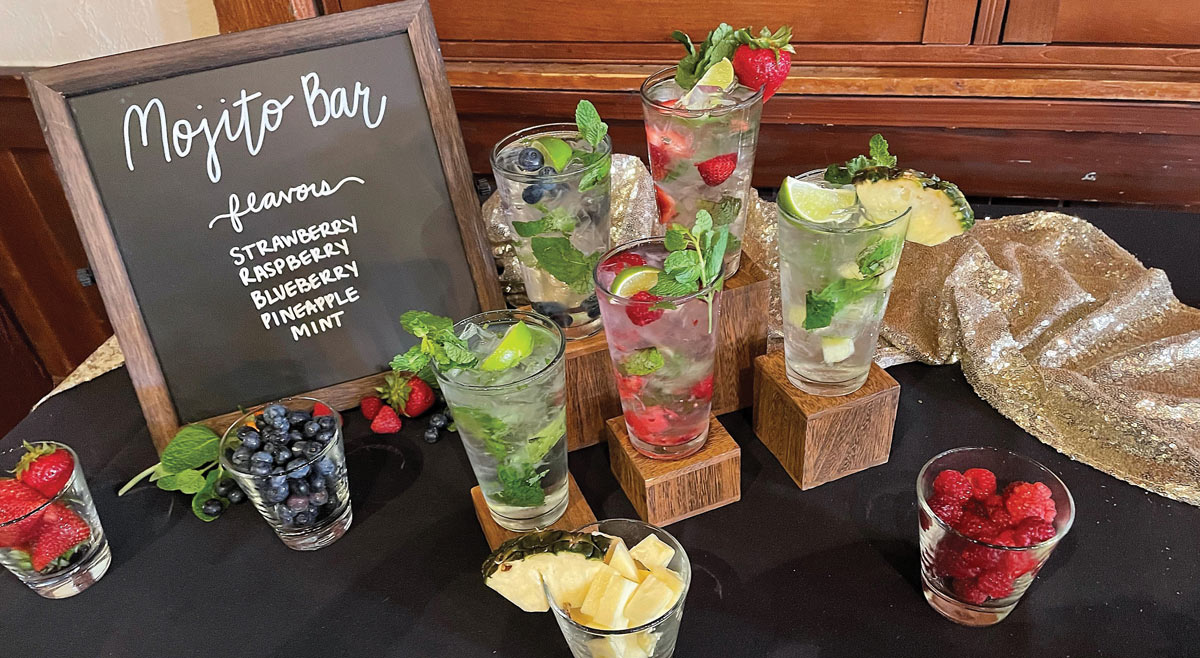 Having clear guidelines on drinks, licensing, and responsible serving creates a relaxed and enjoyable celebration atmosphere.
Having clear guidelines on drinks, licensing, and responsible serving creates a relaxed and enjoyable celebration atmosphere.
What Bar Service Options Are Available at the Venue?
Venues typically offer open bar packages, cash bar setups, or options where guests receive drink tickets. Look into whether signature cocktails are included, what wine-by-the-glass selections are available, and if there are premium spirit upgrades to fit your guests’ tastes and your budget.
Are There Any Corkage Fees or Restrictions on Alcohol?
Some venues let you bring your own wine or champagne for a corkage fee, while others require you to purchase alcohol through their liquor license. Check the rules on bottle limits, insurance requirements, and whether outside bartenders are permitted to ensure you’re following all regulations.
How Are Bartenders Licensed and Trained?
Licensed bartenders ensure that alcohol is served legally and that guests are kept safe. Ask about their certifications, like TIPS or ServSafe Alcohol, the ratio of staff to bars, and their procedures for refusing service to guests who have had too much to drink.
What Are the Venue’s Rules for Alcohol Service Hours and Limits?
Confirm the exact start and end times for bar service, any policies about last call, and what happens if service runs over the agreed-upon time. Setting these hours helps align the flow of the celebration with your contract and your guests’ expectations.
How Can You Be Sure Your Wedding Venue’s Catering Services Are Reliable?
Reliability comes from proven experience, proper compliance, and having backup plans in place. Verifying these elements will give you confidence in your caterer’s performance.What References and Reviews Should You Ask For?
Request contact details for recent wedding clients, read reviews on third-party sites, and browse through photo galleries from past events. Testimonials from clients and professional ratings can show you how consistent their service delivery is.
Does the Caterer Have the Right Insurance and Health Permits?
Confirm they have general liability insurance, workers’ compensation, and up-to-date health department permits. Proper licensing protects you from legal and financial risks, ensuring safe food handling and compliance with event regulations.
What Backup Plans Are in Place for Catering Emergencies?
Ask about their pool of backup staff, options for mobile kitchens, and procedures for dealing with spoiled food. Having a documented emergency plan shows they’ve thought ahead about potential risks and are committed to keeping service uninterrupted.
How Does the Venue Ensure Consistent Food Quality and Service?
Quality control measures, such as standardized recipe cards, oversight from managers, and procedures for monitoring food temperatures, help maintain taste and presentation. Ongoing training reinforces excellent service from the moment guests arrive until the final cleanup.
How Does Historic Dubsdread, The Highland Manor, and Azalea Lodge at Mead Botanical Garden Handle These Catering Questions?
Events by Dubsdread’s three Orlando all-inclusive venues offer integrated catering expertise for every celebration, blending local knowledge with professional execution. What sets Events by Dubsdread apart is our integrated approach to event planning and execution. Our venues not only provide stunning backdrops for any celebration but also leverage our extensive catering experience to handle every detail with precision. From custom menu creations that highlight local ingredients to attentive service staff dedicated to executing the event flawlessly, our organization prides itself on our ability to transform visions into reality. With a strong emphasis on professionalism and trustworthiness, Events by Dubsdread continues to be a go-to choice for those looking to host unforgettable gatherings in Orlando.
How Does Events by Dubsdread Simplify Wedding Planning with Integrated Venue and Catering?
By bringing venue management and catering together under one expert team, Events by Dubsdread streamlines communication with vendors, consolidates billing, and gives you a single point of contact. This all-encompassing approach turns complex catering logistics into a stress-free part of your ceremony and reception. Your wedding deserves nothing less than outstanding culinary excellence. With these essential questions in your toolkit, you can be confident that your venue’s catering options are reliable, transparent, and perfectly tailored to your vision, — whether you opt for in-house expertise, trusted preferred vendors, or creative outside caterers. View our catering brochures here: Orlando Catering Events by Dubsdread